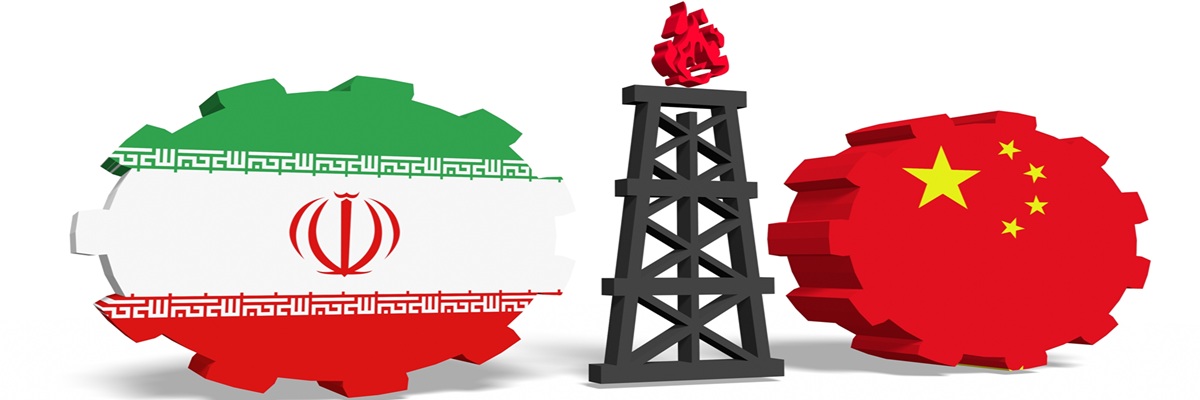Diplomacy
China in the Middle East: Geoeconomic Challenges in a High-Tension Region, from Tehran to Tel Aviv

Image Source : Shutterstock
Subscribe to our weekly newsletters for free
If you want to subscribe to World & New World Newsletter, please enter
your e-mail
Diplomacy

Image Source : Shutterstock
First Published in: Jul.14,2025
Aug.04, 2025
In the Middle East, China seeks to appear neutral by engaging in dialogue with all actors, from Tehran to Tel Aviv, including Riyadh. Beijing's objective is clear: to establish itself as a guarantor of stability to secure its energy and commercial interests.
The People's Republic of China's (PRC) commitment to the Middle East reflects a carefully calibrated geostrategic approach, aiming to preserve regional stability, ensure uninterrupted access to energy resources, and promote its famous Belt and Road Initiative (BRI), also known as the 'New Silk Roads.' In this region, the Sino-Iranian relationship is most often highlighted due to its political weight and military dimension; however, whether in economic, diplomatic, or strategic terms, Beijing's presence in this area certainly extends beyond its ties with Tehran.
As elsewhere in the world, in the Middle East, China divides its diplomatic partnerships into several types, listed here in descending order of intensity: "global strategic partnerships" (in the Middle East: Egypt, Iran, Saudi Arabia, United Arab Emirates, and Bahrain); "strategic partnerships" (Iraq, Jordan, Kuwait, Oman, Qatar, Syria, Turkey, and the Palestinian Authority); "friendly cooperation partnerships" (Lebanon and Yemen); and finally, "innovative global partnerships" (Israel).
China is redefining its priorities in the Middle East
Energy dependence is one of the essential drivers of China's policy in the region. Gulf countries, particularly Saudi Arabia, the United Arab Emirates, and Kuwait, are among the main suppliers of crude oil to the PRC—well ahead of Iran in terms of volume, as well as reliability and investment opportunities.
This economic reality compels China to invest much more heavily in the Gulf Cooperation Council (GCC) countries, where financial stability, political predictability, and institutional openness promote sustainable strategic partnerships and infrastructure development, unlike in Iran.
For these reasons, the Gulf countries have indirectly become essential nodes in the architecture of the BRI through trade, receiving nearly six times more Chinese investments than Iran.
Although Iran has geographical interest as a potential corridor between China and Europe, the persistent effect of international sanctions, poor economic management, and regional adventurism severely limit its ability to attract sustainable Chinese investments.
In contrast, Israel offers a functioning and favorable environment for investors, making it a preferred destination for Chinese capital and infrastructure projects. Its economy is based on solid infrastructure and a dynamic technology sector.
Despite geopolitical shocks, including the recent clashes with Iran – which will undoubtedly impact the country's business environment – Israel, as a member of the OECD, remains attractive in terms of business environment and investment, mainly because the foundations of its economic environment are stronger than those of Iran or Saudi Arabia.
The Hebrew state occupies an increasing place within the BRI – not due to the volume of Chinese direct investments, but because of its strategic position and ambitious infrastructure agenda. Its geographical location – straddling Europe, Asia, and Africa via the Mediterranean – makes it a key land and maritime connectivity point that provides an alternative option to Iran for linking China to Europe.
In this context, China and Israel have made progress in their negotiations for a free trade agreement that has been discussed since 2016. Although discussions have been suspended since 2023, there remains hope that an agreement could be signed once stability returns to the region.
China's trade with Israel and Iran: divergent trajectories
China's commercial relations with Israel and Iran reveal two distinct economic approaches.
With Israel, trade is increasingly marked by imports of high technologies - particularly in the semiconductor field - reflecting a growing technological interdependence.
In contrast, trade with Iran remains focused on industrial goods and natural resources, illustrating a more traditional partnership based on access to raw materials. These contrasting dynamics reflect China's strategic flexibility, which relies on Israeli innovation while securing its supplies from Iran.
Tensions in the Strait of Hormuz are testing China's strategy in Iran
For nearly fifty years, Iran has turned to China for economic support. However, despite 21 Chinese greenfield investment projects between 2003 and 2020 – mainly in the energy sector – Beijing has gradually begun to disengage due to international sanctions and ongoing regional instability.
Large companies such as CNPC and Sinopec have reduced their stake, or even abandoned some projects, while tech companies like Huawei and Lenovo have also scaled back their presence in the Iranian market. Between 2017 and 2019, Iran reportedly saw an outflow of Chinese capital estimated at $990 million.
China views instability in the Middle East, particularly the confrontation between Israel and Iran, as a direct threat to its economic and commercial interests. As the world's largest buyer of Iranian oil, China is especially concerned about potential disruptions in strategic maritime routes, particularly the Strait of Hormuz.
In June 2025, Chinese oil imports from Iran significantly increased, reaching up to 1.8 million barrels per day – a surge that occurred just before the military escalation between Israel and Iran, which raised concerns about the security of the Strait of Hormuz.
A sign of the weight of the PRC in this region: after the reciprocal airstrikes between Israel and Iran, and Tehran's threat to close this crucial passage, U.S. Secretary of State Marco Rubio urged Beijing to intervene, emphasizing China's heavy dependence on this oil route.
China–United States: strategic tensions in a transitioning Middle East
China and the United States recently signed a trade agreement and established a 90-day tariff truce, aiming to resolve some key disputes and stabilize economic relations. Furthermore, on the military front, Iran and China signed a military cooperation agreement as early as 2016, reflecting their mutual desire to counter American influence in the region and secure trade routes.
Historically, China has supported Iran through arms sales, technology transfers, and training programs. Moreover, despite the official rhetoric, some reports suggest that Chinese technologies have contributed to the development of Iran's ballistic program.
The Sino-Iranian relationship in defense illustrates a two-level diplomacy: China discreetly supports Iran's military autonomy while ensuring it does not compromise its strategic relationships with other important regional partners, including Israel, with whom it also maintains top-level security dialogues. This highlights Beijing's broader ambition: to avoid regional polarizations and maintain a balance of power favorable to its interests.
China's strategy in the Middle East towards the United States is based on a principle of equidistance: to increase its influence without direct confrontation, while drawing strategic benefits from Saudi Arabia, Israel, Iran, and Egypt. In this perspective, the People's Republic of China does not seek to replace the United States as the dominant power in the region, but rather to offer a multipolar presence focused on preserving stability. Maintaining the status quo, avoiding direct conflicts, and building a parallel system of influence through infrastructure, trade, and diplomacy are the pillars of China's position in the Middle East. This approach ensures Beijing secure access to energy, trade corridors, and sustainable geopolitical influence from Tel Aviv to Tehran.
First published in :

Kambiz Zare is an international economist and professor of International Business and Geopolitics
Unlock articles by signing up or logging in.
Become a member for unrestricted reading!